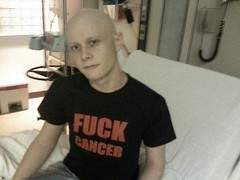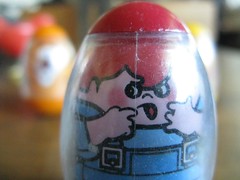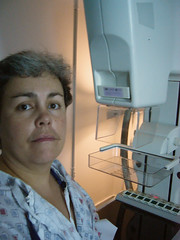Let me start by saying that I need to vent because I am feeling really baffled, frustrated and sad
You see, I am once again getting a mixed message from my health care providers. On the one hand, they have diagnosed me with infertility and, more recently, the start of early menopause. On the other hand, they are insisting that I use two forms of birth control while undergoing Hepatitis C treatment.
Now I get it that the drugs I will be taking are horribly toxic to a fetus and can cause serious birth defects. But come on! If I can't get pregnant under normal circumstances because my ovaries have been destroyed by the chemotherapy I received 24 years ago to treat the blood cancer leukemia, what makes them think that Hep C treatment is going to magically change that? I mean, if G-o-d was going to intervene and help me conceive a child, don't you think G-o-d would have the good sense to do so under more ideal circumstances?
Thing is, this isn't the first time I have been baffled by what I perceive to be a contradictory message. Nope, I have been advised to continue using birth control several times since being diagnosed with infertility. Which makes me wonder Do I not understand what the word infertile means? Because, silly me, I keep thinking it means I will never ever get pregnant or be a birth mother because my ovaries are fried. Right?
But let's say for a moment that I am wrong. Let's say they're right and hypothetically I could get pregnant... On second thought, forget it. I know they are wrong because I already tested this hypothesis out, and sure enough, I could not get pregnant after months, no, years of trying. Heck, my ovaries are so burnt to a crisp that I couldn't even get a fertility monitor to predict when I was ovulating because, well, I wasn't.
All of this double talk is really dredging up a lot of old, painful feelings. The hardest thing I have ever had to accept is that I can't fulfill my life-long dream of giving birth to a child. And every time I have to revisit this subject, it is just like pouring salt into old wounds.
O.K., so enough about me. Don't worry, I'll be fine...eventually. And yes, I will comply with their request to use two forms of birth control during Hep C treatment, even though I know I will not be getting pregnant during this lifetime.
Let me hear from you now. Have you ever been told contradictory information about your chronic illnesses? How did it make you feel? What did you do to deal with the situation? Did the fact that this happened to you change how you felt about your health care providers?
Leave a comment below or head over to the Oh My Aches and Pains Facebook page to share your story.








![Reblog this post [with Zemanta]](http://img.zemanta.com/reblog_b.png?x-id=761c2f9d-0c23-4296-94fb-a00a39bd5306)
![Reblog this post [with Zemanta]](http://img.zemanta.com/reblog_b.png?x-id=7d74649d-7470-4992-a8cd-66b4d55ebcf5)

![Reblog this post [with Zemanta]](http://img.zemanta.com/reblog_b.png?x-id=981b933c-13cb-47f1-ae32-7ceff2767255)

![Reblog this post [with Zemanta]](http://img.zemanta.com/reblog_b.png?x-id=469cdfd9-9789-406a-b1a6-5c39b8245856)

![Reblog this post [with Zemanta]](http://img.zemanta.com/reblog_b.png?x-id=f51fa875-5929-4007-a955-7db446e8c3b9)

![Reblog this post [with Zemanta]](http://img.zemanta.com/reblog_b.png?x-id=bf88a44d-40c1-4408-aec6-4a36f901681f)

![Reblog this post [with Zemanta]](http://img.zemanta.com/reblog_b.png?x-id=be8a630a-f778-480c-8f4d-4013837fd28f)

![Reblog this post [with Zemanta]](http://img.zemanta.com/reblog_b.png?x-id=566635fa-ace7-4bc1-805c-60f2b53bc714)

![Reblog this post [with Zemanta]](http://img.zemanta.com/reblog_b.png?x-id=9b176c36-cc9f-4e08-832c-2c09b6b4e76e)

